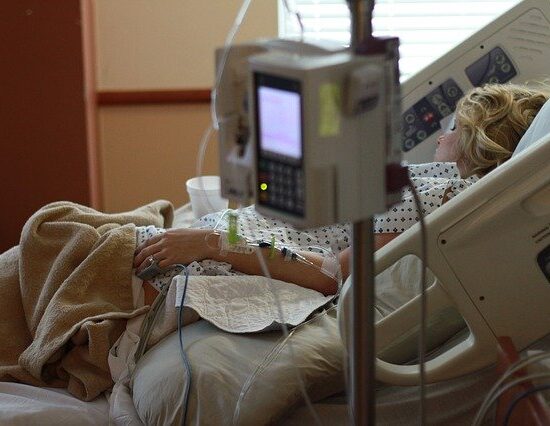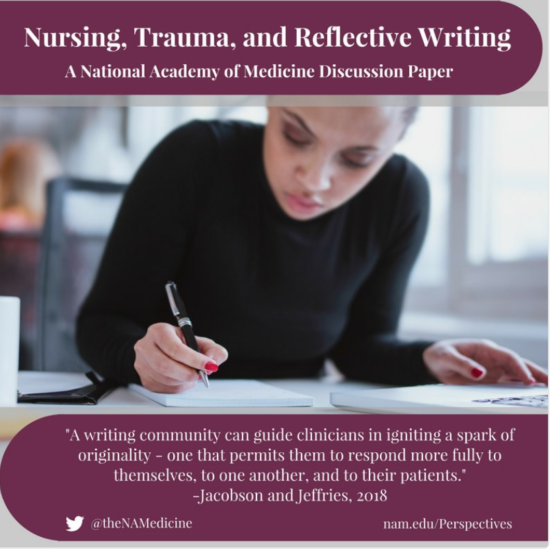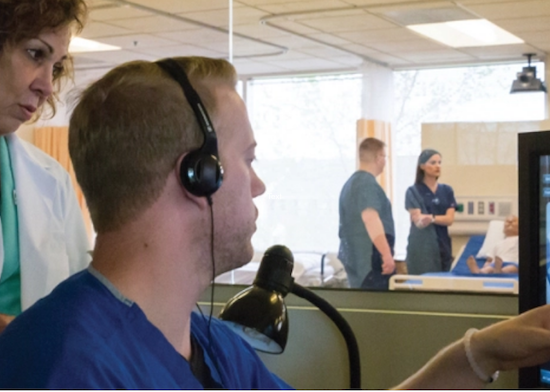I’m not a nurse, and so I’ve never guided anyone through a process of life-and-death decision making. I am a poet and an editor and a teacher of writing to nurses and nursing students, though, and I’ve seen the tremendous value reflective writing can hold for preparing the nation’s 3 million nurses to attend to an ever-more-diverse population.
 New support for this idea comes in the form of a hefty new anthology, Keeping Reflection Fresh: A Practical Guide for Clinical Educators, edited by Allan Peterkin and Pamela Brett-MacLean and published last month by Kent State University Press. I’m happy to say that an essay of mine is included among several dozen others, all exploring the use of writing, reading, visual arts, performance, and other humanities-based approaches to innovation in clinical education.
New support for this idea comes in the form of a hefty new anthology, Keeping Reflection Fresh: A Practical Guide for Clinical Educators, edited by Allan Peterkin and Pamela Brett-MacLean and published last month by Kent State University Press. I’m happy to say that an essay of mine is included among several dozen others, all exploring the use of writing, reading, visual arts, performance, and other humanities-based approaches to innovation in clinical education.
Several chapters authored by nurses are included in the anthology. Still, in my view too few nurses are exposed to these methods, even though they’re needed now more than ever. Six years ago the Institute of Medicine (now the Health and Medicine Division) issued a report on the future of nursing (which I contributed to) that recommended, among other things, that by 2020 80% of U.S. nurses hold a bachelor’s degree or higher. The recommendation arose from years of research showing that hospital nurses with bachelor’s degrees are linked to significantly lower rates of patient death and medication error than nurses with associate’s degrees.
The number of nurses with advanced degrees is rising, but they often aren’t regarded as leaders in academic health centers, according to a report released earlier this year by the American Association of Colleges of Nursing. Schools of nursing will have to reconfigure their curricula in several areas, the report recommends, among them leading efforts in interprofessional education.
Reflective practice pedagogy holds much potential for nursing deans and faculty facing these mounting pressures.
My contribution to the anthology relates the story of a former student of mine, a nurse in an RN-to-BSN program who took my course to enhance her writing skill. Through exploring poetry and writing narratives about her own life, including her history of domestic violence and immigration, she discovered the roots of her enthusiasm for psychiatric and community nursing.
She’s now in graduate school with an eye toward a doctorate, and she credits writing stories and reading poetry with fueling her desire to advance her career.
I have had several aims in my writing courses, all furthering the ultimate goal of improving nurses’ ability to give their patients more compassionate care:
- to guide nurses in using reflective writing as a tool for handling the emotional stresses of their work and thereby preventing compassion fatigue, burnout, and secondary traumatic stress
- to aid nurses in communicating the routine and exceptional ways in which they are their patients’ advocates
- to encourage nurses to engage in writing stories about their lives and about the care they provide as a process of discovering what they know, think, and feel
- to help nurses meet the rigors of academic writing and thus remain in school
As Rita Charon, of Columbia University’s narrative medicine program, puts it in Keeping Reflection Fresh, “By welcoming beauty and the imagination into its midst, our medical center is coming to understand that creativity is required of effective care, that the art can improve the care, that the care of the sick is a work of art.”
Nurses write remarkable stories when given a little guidance, a block of time, and some poems as prompts. Schools of nursing and academic medical centers must make greater effort to give nurses opportunities to write reflectively about their lives and work. Now we have a roadmap for doing so. Keeping Reflection Fresh provides concrete methods for those seeking to embed reflective strategies more deeply into nursing education and practice.








